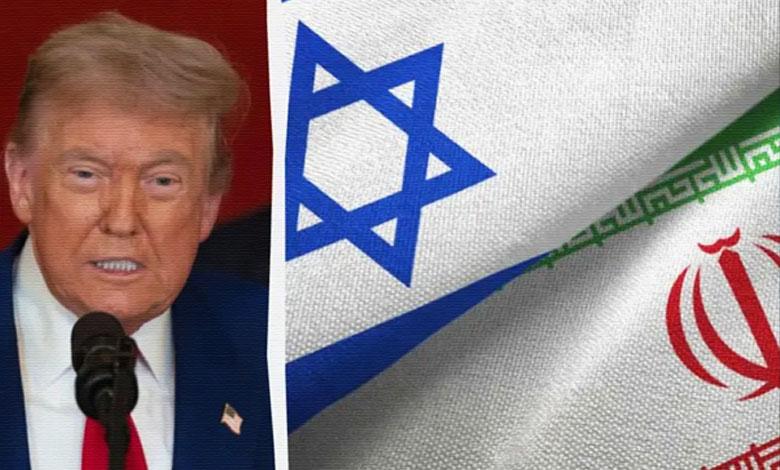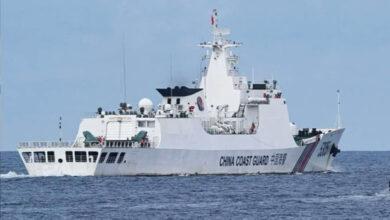Truce as a political spectacle: why agreements in the Middle East don’t work

On the night of June 24, 2025, the world witnessed a rare diplomatic-military spectacle that not only avoided casualties, but also ended with the unexpected announcement of a cease-fire between Iran and Israel, brokered by the United States. Amid escalating tensions in the Middle East region, with strikes from both sides threatening to escalate into open war, Iran launched a missile attack on a US air base in Qatar. However, the attack was not an act of escalation, but rather a carefully coordinated de-escalation gesture.
Forewarned means saved
Iranian missiles did launch in the direction of the Al-Udeid Air Base near Doha, where American forces are stationed. However, the strike turned out to be completely predictable: the Iranians had warned both the Americans and the Qataris about it in advance. The base was evacuated, the missiles were intercepted – no deaths, no injuries, even the equipment remained undamaged.
This scenario is reminiscent of previous “symbolic responses” by Iran – such as the 2020 attack after the assassination of General Soleimani, when missiles hit a virtually empty US base in Iraq without causing any deaths. A similar logic applied in April 2024, when Iran directly attacked Israel for the first time – lots of missiles, lots of noise, but minimal consequences.
“Saving face” as a strategy
Former US intelligence analyst Jonathan Panikoff called this tactic “planned choreography”: Iran displayed strength to a domestic audience, but in fact did everything to avoid provoking a real conflict. Warning allies and enemies, a clear demonstration of the intention not to cause harm is an example of “escalation with a way out”, that is, a situation where the parties resort to controlled tension to further reduce the degree of conflict.
This line is confirmed by Tehran’s official statements: the number of missiles was allegedly equal to the number of American bombs dropped days earlier, and Qatar was called a “brotherly country” that is not in danger. Even the country’s airspace was closed in advance.
Is Trump the moderator-in-chief?
Shortly after the attack, Donald Trump not only thanked Iran for the “early warning” but also announced the achievement of a “full and comprehensive ceasefire” between Iran and Israel. This move caused surprise, because just a few days before, he had promised Iran a “much bigger” response in case of new attacks. This dual message of threats and diplomacy is typical of Trump’s foreign policy style, which in his second term combines military pressure with offers of deals. His representative in the previous nuclear talks, Steve Witkoff, has already resumed contact with the Iranian side, although Tehran has not yet agreed to new rounds of negotiations under pressure.
Oil is falling, but questions remain
The fact that after the attack oil prices did not rise, as is usually the case during conflicts in the Middle East, but on the contrary, fell. This shows that the markets did not believe in the reality of a large-scale escalation.
However, the question of Israel’s reaction remains open. It was Israel that repeatedly struck Iranian territory in recent weeks, including the nuclear facility in Fordow, and so far there has been no official confirmation of its participation in the truce.
Peace or respite?
Iran has demonstrated mastery in hybrid balancing between the domestic need for a tough response and the foreign policy interest of not starting a war with the US. Trump, on the other hand, seems to have tried to turn the incident into a proof of his peacemaking effectiveness, taking a step toward a new diplomatic process.
But does this mean a real path to peace or just another pause before a new round of the conflict? This depends not only on Washington and Tehran, but also on the further actions of Israel, which continues to insist on dismantling the Iranian nuclear program by force.
A truce that did not last
The “full and comprehensive ceasefire” between Iran and Israel announced by US President Donald Trump on June 23 lasted for a few hours. In the evening of the same day, the Israeli side reported massive missile strikes by Iran, particularly on southern cities such as Be’er Sheva, where there are dead and wounded. Iran, in turn, rejected the accusations, saying that it had not carried out any attacks since the start of the ceasefire, and instead accused Israel of provocation.
This exchange of blows shows a deep crisis of trust between the parties. Iran and Israel traditionally interpret events from the positions of complete mutual suspicion, and even a clearly declared cease-fire is not perceived as an obligation, but as a tactical tool – either for regrouping or for demonstrative advantage.
Trump’s reaction is symbolic: the morning after the strikes, he condemned both sides, but, despite expectations, he put more pressure on Israel, urging them not to drop bombs on Iran and not “turn the situation into hell.”
The fact of the ceasefire violation shows that without a reliable control mechanism and security guarantees, any “agreements” in this conflict remain only declarative. Moreover, when two sides have been exchanging blows for several weeks, peace without solid preconditions turns into a pause rather than a stable order.
Regional context: positions of Egypt and Saudi Arabia
In the current confrontation, the regional states take positions balancing between restraint, anxiety and diplomatic distancing.
Egypt, a traditional mediator in many Middle East conflicts, favors immediate de-escalation, but refrains from making harsh statements against either side. Cairo understands that any escalation in the region could destabilize Sinai or jeopardize its trade and energy projects (including the Suez Canal and liquefied natural gas production and export projects).
Egypt also fears the radicalization of Islamist groups that could take advantage of the chaos. Therefore, Cairo supports the US efforts for a truce, but does not openly initiate any negotiations.
Saudi Arabia, as Iran’s main regional competitor, has officially refrained from direct comments on the truce, but does not hide its concern about Tehran’s actions. In the statement of the Ministry of Foreign Affairs of Saudi Arabia, there is a call for “restraint and respect for the sovereignty of neighbors”, which is possible. These words can be interpreted as a simultaneous criticism of Israel’s strikes on Iranian territory and a hint at the destabilizing role of Iran itself in the region.
At the same time, Riyadh is not interested in a direct conflict – it focuses on domestic economic reforms within the framework of Vision 2030, and a new war could disrupt plans to attract investments, in particular, in mega-projects on the Red Sea.
Turkey’s role: between mediation and own game
Against the background of the escalation of the conflict between Iran and Israel, Turkey is showing a restrained, but very revealing position. Ankara has made no loud statements either regarding the US strikes on Iranian nuclear facilities or the subsequent exchange of strikes between Israel and Tehran. At the same time, this external restraint does not indicate indifference: Turkey is carefully watching how the conflict changes the balance of power in the region and seems to be building its own game in the shadows.
Turkey has a historically complicated but not hostile-conflict relationship with Iran. Both countries cooperate in matters of trade and energy, have common interests in stabilizing borders (in particular in Iraq and Syria), but also compete for influence in the Muslim world. Ankara condemns Western sanctions against Iran, but does not support Tehran’s radical steps, in particular related to its missile program or actions in Syria.
At the same time, Turkey is a member of NATO, and this limits its ability to openly support Iran in a conflict with the US or Israel. Hence the diplomatic restraint, without adopting an unambiguous position.
The Syrian factor
Both Turkey and Iran are influential actors on the territory of Syria, where they support opposite sides: Tehran – the Assad regime, Ankara – armed groups of the Sunni opposition. This competition repeatedly led to local conflicts of interests, but did not turn into a conflict. Turkey is not interested in destabilization on the southern border, so it tries to maintain the balance even against the background of the Iranian-Israeli confrontation.
If the conflict escalates into Syria or Iraq, Turkey is likely to increase its military presence in border areas while avoiding direct confrontation with Iranian forces.
A chance for mediation?
Ankara has repeatedly offered itself as a mediator in the settlement of conflicts in the Middle East. After the controversial mediation between Ukraine and Russia in 2022-2023, Turkey has the diplomatic experience and capacity to offer a “neutral territory” negotiation format.
However, in the case of Iran and Israel, trust in Turkey is limited: Israel is wary of the emotional rhetoric of Erdogan, who has openly criticized Tel Aviv’s actions in the Gaza Strip.
Keeping Turkey “above the fray” opens up an opportunity for it to strengthen its own position in negotiations with the West, particularly in the spheres of security, energy and trade. Against the background of Western fragmentation (including the weakening of unity within NATO), Turkey seeks to play the role of a “contact broker” capable of speaking both with Washington and with Tehran or Moscow.
Thus, Turkey is not just an observer – it is a player that uses the fog of war to expand its geopolitical maneuverability. Although it is not yet an open initiator of negotiations, Ankara itself could become an important point of contact if the conflict threatens regional stability again – especially if the US position weakens and Israel and Iran enter into a protracted confrontation.
At present, the prospect of returning to the Joint Comprehensive Plan of Action (JCPOA) seems unlikely. After the US withdrawal from the agreement in 2018 and subsequent sanctions, Iran has gradually violated more and more provisions of the agreement. According to the IAEA, Tehran has already accumulated enough highly enriched uranium to “in theory” create several nuclear warheads within a few weeks. And the latest attack only strengthened the belief in Iran that no actions guarantee security.
At the same time, the final rejection of the negotiation track does not meet the interests of any of the parties. The US is not interested in a prolonged conflict in the region, especially against the backdrop of the war in Ukraine and rising tensions in the Asia-Pacific region. The EU and the UN, for their part, are looking for any opportunities for de-escalation. At the same time, Iran does not want to turn into a final exile, like North Korea.
Therefore, negotiations are possible only under new dynamics – with guaranteed deterrence mechanisms and international mediators whom both sides will trust. This could be a role for China or the Persian Gulf countries.





